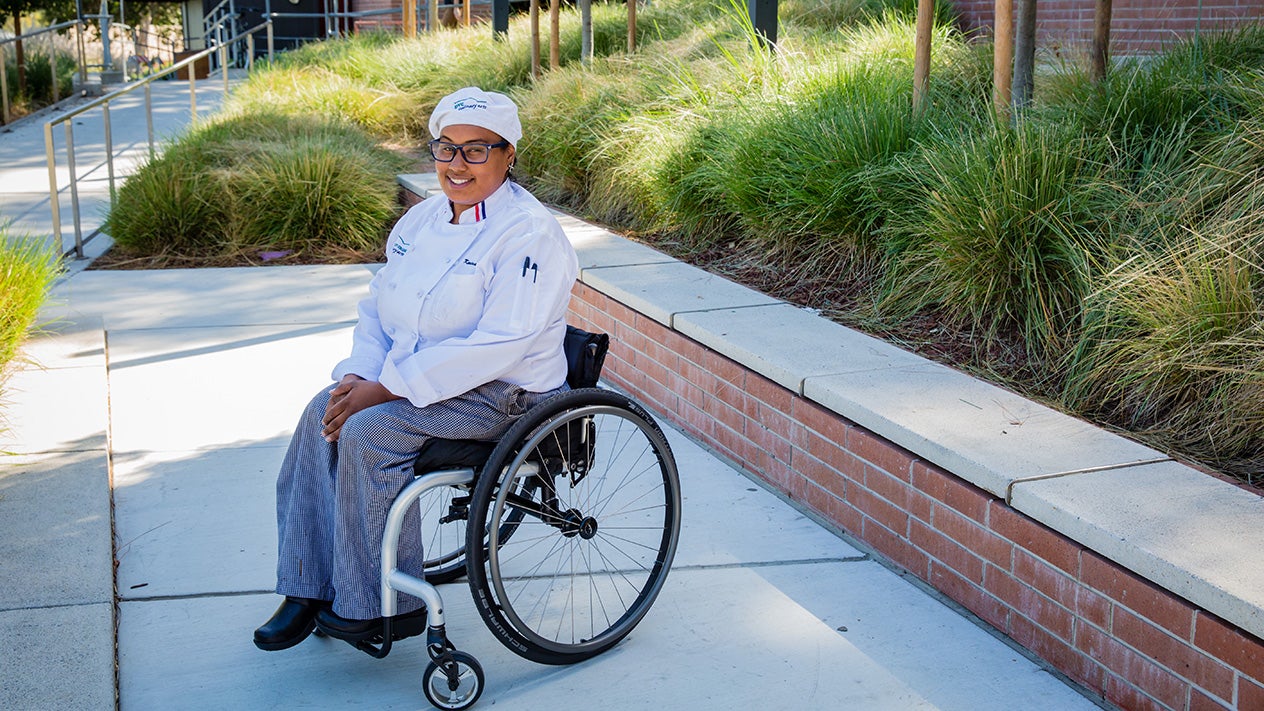DVC welcomes students with disabilities, and encourages parents to support their children's growing independence as they begin their college journey. Learn more about DVC's commitment to your child's success!
The transition from high school to college involves many changes and adaptations, particularly for students with disabilities. This also affects their parents.
Typically, parents play a primary role in the K-12 system in their children’s education and in the provision of services for their disability. However, this responsibility changes in college. In the post-secondary setting, students are expected to play the primary role and parents’ role is secondary. For example:
- Students must advocate for themselves. They are responsible for communicating their needs and requests to the DSS office. DSS cannot accept instructions or appointment requests from parents.
- Students must request each service each semester. DSS will not share information on accommodations with instructors without a written request. Parents cannot submit these requests on behalf of their children.
- Under federal law (FERPA) DSS must protect student confidentiality. DSS staff cannot share information with parents about their children’s services, grades, or interactions with DSS without prior written permission.
Here is a list of other differences between high school and college for both students and parents
K-12 | Higher Education |
|---|---|
District identifies disability. | Student responsible to provide appropriate disability documentation. Community college may test for learning disabilities. |
District creates Education Plan. | Student identifies own needs. |
District ensures that the I.E.P. is implemented and goals are met. | Student is responsible for own goals and progress. |
Teacher advocates for student. | Student advocates for self. |
Fundamental alterations are allowed to the program of study, graduation requirements and instructional methods. | Accommodations may NOT alter course or degree requirements or instructional methods. |
Personal services provided. | Personal services ( attendant care) not provided. |
Success more of a right. | No guarantee of success. |
Transportation to and from school. | Student arranges own transportation. |
Preparing Your Child for College
- Your child will need new skills to succeed in college. Chief among these is the ability to self-advocate. To help your child prepare: Teach them about their disability, as well as the services they received in high school (such as extended testing time).
- Practice describing the disability. At a minimum, students must explain how the disability affects them to DSS staff. They may also choose to share some of this information with instructors. However, this is an individual decision, not a requirement of college or DVC. DSS will never disclose information about a student’s disability to other DVC staff or faculty without their written permission.
- Wean your children off services that are not available in college. For example, instructors will not summarize content for students with disabilities, nor can DSS force them to share their notes from lectures. Many will share slides from the presentations online through Canvas, but this is voluntary on their part.
- Include your child in IEP meetings so they can learn about their services.
- Have your child take primary responsibility for applying to DVC and DSS. For more information on the application process, see these steps for graduating seniors.
- Visit the campus prior to the first day of class so you are both familiar with its layout and the location of the classrooms, student services, the library, the cafeteria, and other useful buildings.
- Attend any available orientations, such as Welcome Day.
